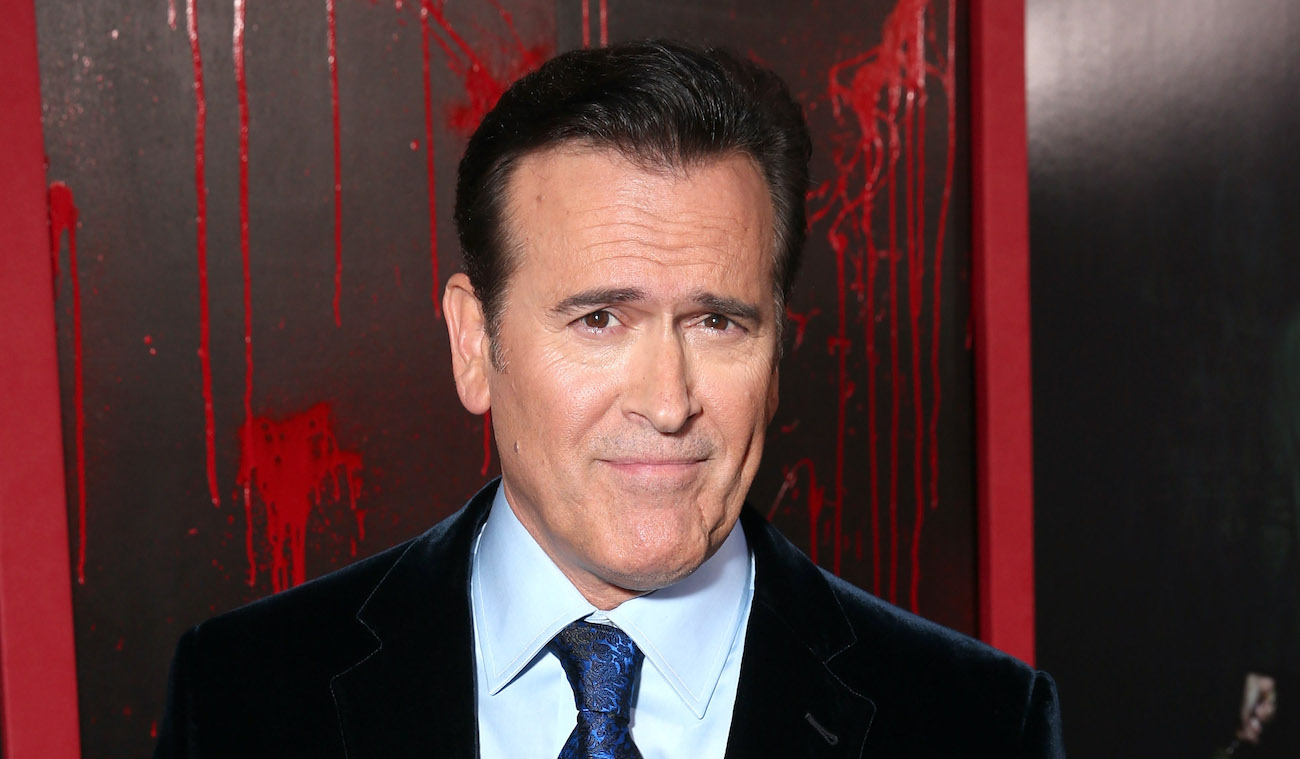Bruce Campbell has been doing cool horror movies before they thought it was cool. And by “they,” we mean the recent spate of social media tastemakers and even some film critics who’ve embraced the horror renaissance of the last decade with the dubious phrase of “elevated horror.”
To be sure, the horror genre is having another moment after the 2010s—one in its long history where fascinating and young filmmaking voices use the tools intended to scare an audience in order to make something more visceral or unsettling than just a jump scare. In recent years that’s included new auteurs like Ari Aster (Hereditary, Midsommar), Robert Eggers (The Witch, The Lighthouse), and Jordan Peele (Get Out, Us).
But Campbell of course worked with his own up and coming horror auteur as far back as the late ‘70s—a time when Sam Raimi was just a college dropout with a minuscule budget and a dream to make the “ultimate grueling experience in terror.” The fact we’re still talking about The Evil Dead 40 years later would seem to suggest Raimi and his cohorts succeeded, including with childhood chum Campbell being both the star and co-producer on the project.
So when we sat down to talk with Campbell earlier in this spooky season about The Evil Dead’s 40th anniversary, we discussed how the perception of horror has changed since the days he and Raimi huddled around a cabin in the Tennessee woods without heat, and how some have even suggested the recent slew of great modern horror movies is due to young filmmakers allegedly elevating a genre which (arguably) began with masterpieces of German Expressionism from a century ago.
“I don’t care about their dumb terms,” Campbell says when we mention elevated horror. “But I’m glad to see horror mainstreamed, because in the Evil Dead era, horror was one rung above porno. The actors who were in horror movies were either starting out or on their way out. They were either young or old. You started in horror to get into the business or because you couldn’t get arrested. And it’s very nice to see now that it’s just another genre. It doesn’t have to have satanic implications; it’s not going to ruin the youth of America. It’s just another genre that happens to capture the imaginations of audiences.”
Campbell knows of what he speaks. Raimi came into the genre around the same time as another crop of hungry and brilliant stylists—John Carpenter’s Halloween (1978) filmed one year before The Evil Dead did, and in Canada David Cronenberg was only beginning to master his body horror nightmares. And yet, even as the ‘70s was also the decade that saw the first horror movie nominated for Best Picture at the Oscars (The Exorcist), the genre was still largely dismissed as cheap exploitative dreck by many mainstream critics—especially as copycat filmmakers emulated Carpenter and cultivated the slasher subgenre in the ‘80s. In the case of The Evil Dead, the film was even inaccurately labeled a “Video Nasty” in the UK where the film became the centerpiece of a years-long legal battle over censorship.
Nevertheless, interesting new voices continued to reinvent and reinvigorate the horror genre with each passing decade, even if the 2000s in retrospect look like a particular low point for the form. But that too has passed, and in the wake of new films like The Babadook and It Follows, Saint Maud and this month’s Lamb and Last Night in Soho, horror is again one of the most exciting genres in cinema. So if folks want to claim it’s somehow been “elevated,” well Campbell won’t begrudge them too much.
“Horror and comedy are really the only two genres that will get a physical response out of an audience,” the actor says. “And I think it’s really fun to sit and watch an audience with a good horror movie that makes them jump. It takes a lot of skill as a filmmaker to get them to do that.”
If you’re looking for some ideas for this Halloween that’ll quicken your pulse, we have some suggestions right here.
